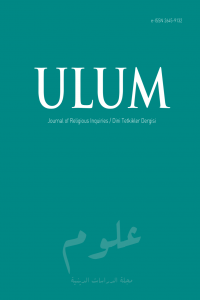The Interaction Between Islamic Legal Methodologies and Social Context in the Light of the Contemporary Practice of Iftā’: A Case Study of Two Institutions
Eser, Suudi Arabistan’daki Dar al-İfta (İlmi Araştırma ve İfta Genel Başkanlığı) ve Türkiye’deki Diyanet (Diyanet İşleri Başkanlığı) kurumları tarafından verilen fetvaları, hangi İslam hukuk kavramlarına ve yöntemlerine başvurulduğunu tespit etmek amacıyla karşılaştırır. Araştırma, kurumların İslam hukukunun ana kaynaklarını nasıl yorumladıklarını ve bu kurumların farklı ve hatta taban tabana zıt İslami hukuki hükümlere ulaşma sürecini değerlendirir. Çalışma, bu iki dini modern kurumu inceleyerek ve onların İslam hukuk yorumlarına ve görüşlerine (fetvalar) odaklanarak, İslam hukuk metodolojileri ve toplumsal gerçeklikler arasındaki dinamik bağlantıların ve karşılıklı etkileşimin anlaşılmasını sağlar. İslam hukukunun aktif boyutu, fetva mekanizmasının yeni düzenlemeler ve hükümler sağladığı, kültürel, yasal, siyasi ve sosyal bağlamlarda görünür bir şekilde ortaya konmaktadır.
The Interaction Between Islamic Legal Methodologies and Social Context in the Light of the Contemporary Practice of Iftā’ A Case Study of two Institutions
The non-binding Islamic legal rulings or opinions (fatwās), which are issued by Muslim scholars or Islamic religious institutions in response to questions of Muslim individuals may be said to represent the most dynamic genre of (past or present) Islamic legal literature. It was traditional case that the practice of iftā’ resided in the individual authority and effort of Muslim scholars. However, after the establishment of national and international Islamic religious institutions at the beginning of the twentieth century, this practice has largely become the responsibility of specific bodies tasked with issuing fatwās from that day to this. Saudi Arabia’s Dār al-Iftā’ (the General Presidency of Scholarly Research and Iftā’) and Turkey’s Diyanet (the Presidency of Religious Affairs) are concrete outcomes of the twentieth century. Both insti-tutions provide an idiosyncratic insight into the practice of iftā’ and more specifically its development and application within two quite different societies. One of the primary concerns of this thesis is there-fore to identify the authority, function and role of the two institutions and their official fatwās in their respective environments.
___
- Yakar, Emine Enise. The Interaction Between Islamic Legal Methodologies and Social Context in the Light of the Contemporary Practice of Iftā’: A Case Study of Two Institutions. PhD. Dissertation, University of Exeter, Institute of Arab and Islamic Studies, Exeter, United Kingdom, 2018.
